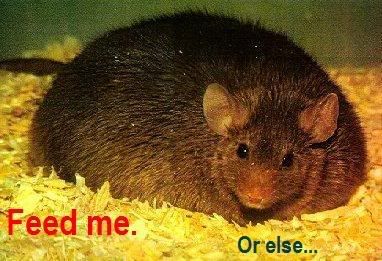Although people have long scoffed at those suffering from obesity who claim they are overweight because of their genes, there might be something to it after all. “How?”, you might be asking. Scientists have actually discovered how a faulty gene may lead to obesity.
The study in Nature Medicine was conducted on mice and discovered that the body’s traditional message of “Please…for the love of all that is holy…please put down the cake” can be blocked if the mutation is found in animals.
This message is blocked because the appetite hormones have been disrupted by the faulty gene. The Georgetown University Medical Center has said that they hope this will lead to new ways of controlling weight. But pseudo scientists like me believe that it will help disgustingly obese people claim that they ate their twelfth burger of the week because their genes made them that way.
In truth, there are many genes which are thought to have an impact on one’s weight, such as the neurotrophic factor gene (BDNF), which is derived from the brain. However, a lot of these studies have only been tested on animals like mice and rats which don’t have exactly the same genes as us. The human studies are still fairly thin so everything has to be taken with some scepticism.
The mice used were actually genetically modified to have the faulty genes, and it was shown that the mice spent most of their time eating. To put this into perspective because not many of us will have seen an obese mouse before, the mice consumed an additional 80% of food; so pretty much more than their own body weight, many times over.

Generally, the way a healthy body should work is that after a meal has been completed the hormones known as leptin and insulin should inform the brain that the body is full, but with the mutated gene the hormones in the blood were passing the message to the wrong part of the brain.
Professor Baoji Xu, who worked on the study, said that it’s because the neurons can’t communicate with each other so the leptin and the insulin can’t do their jobs correctly.
Ok, so far we have been very kind to overweight people because this may give them an excuse, but, just as God promised Moses a land flowing with milk and honey only to not let him in when he reached the border, it’s this writer’s sad duty to tell you that it’s a prominent disease in mice but not in humans. So this research is only going to be any good for treating overweight people by stimulating an increased amount of the hormone.
But, hey, maybe things like this will lead to a time where we don’t have to bother exercising to keep weight off anymore? A man can dream.




